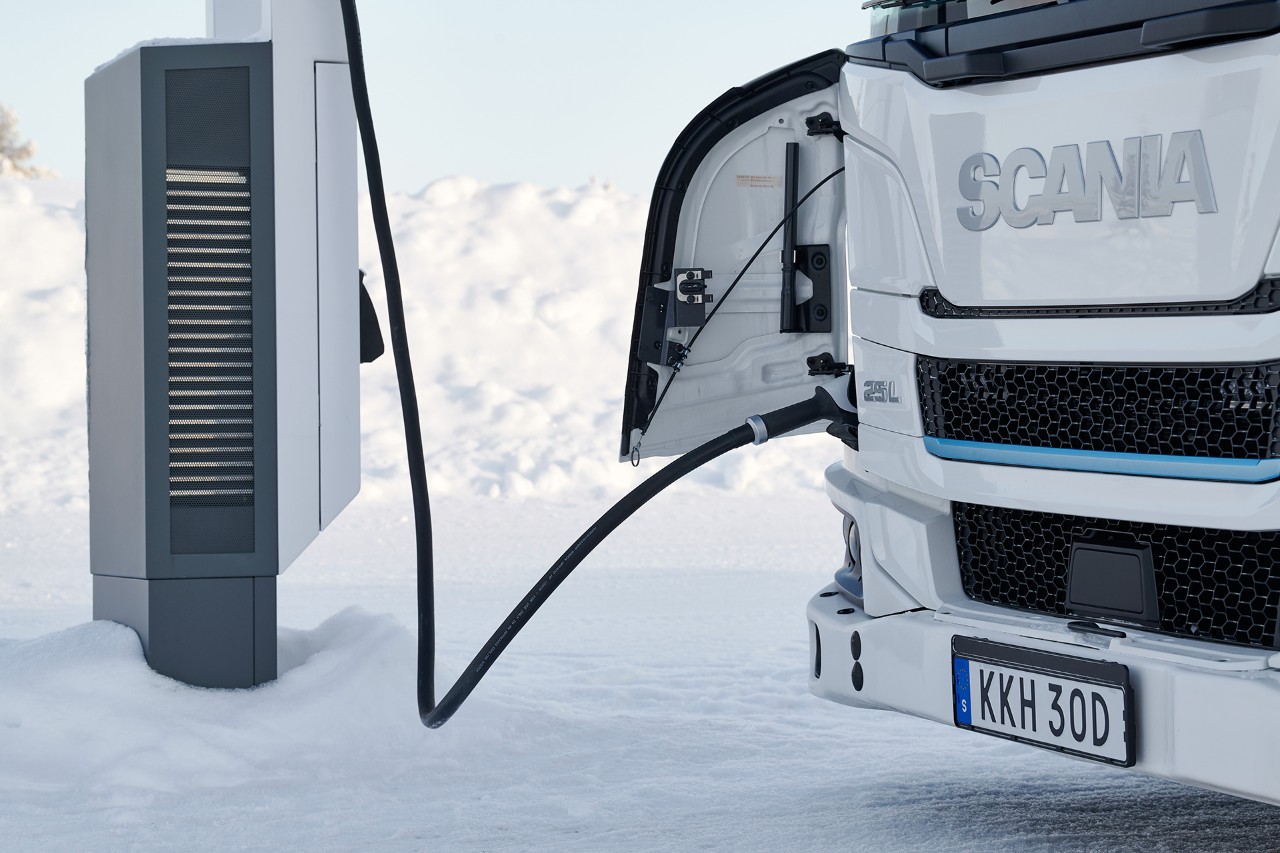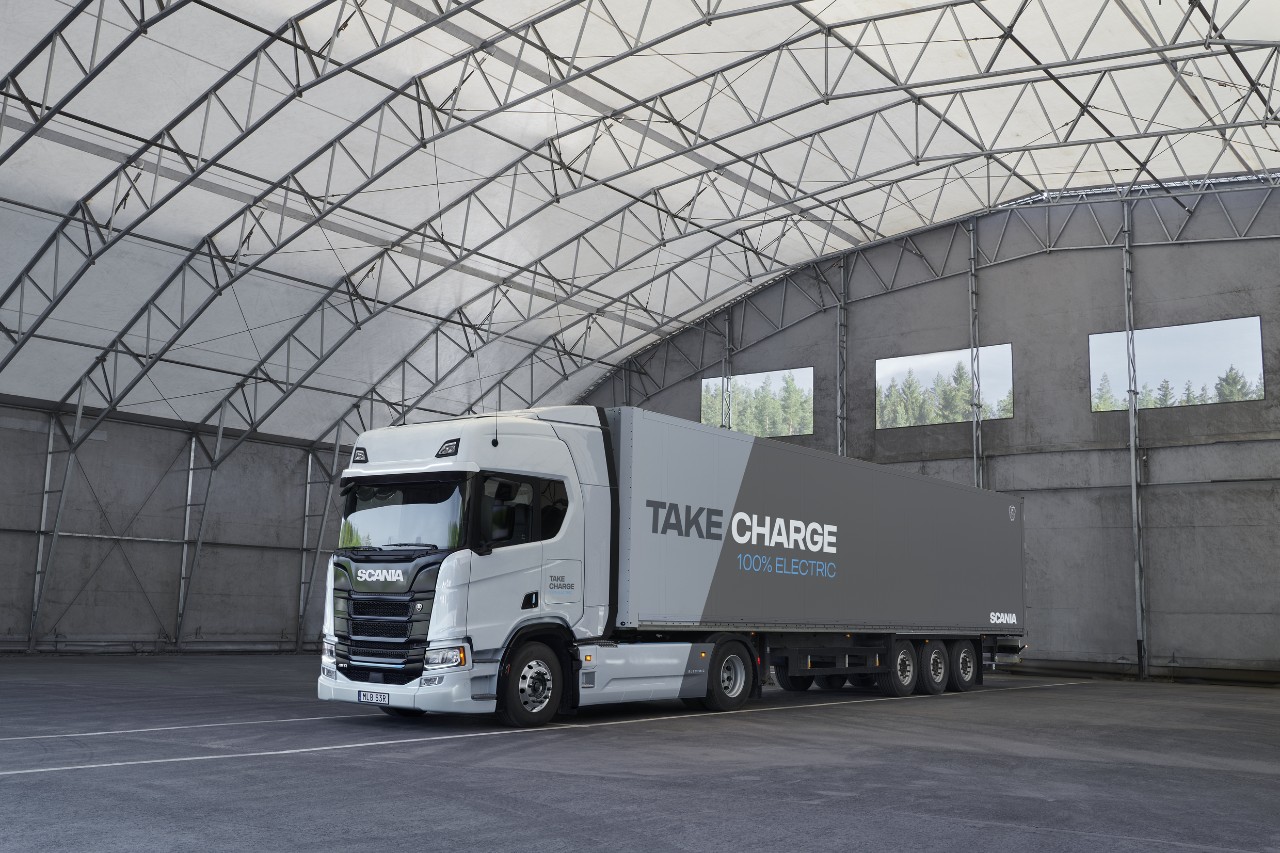
Why battery-electric vehicles are the key to sustainable transport
By: Daniel Schulze, Head of Electrification Strategy & Portfolio Management at Scania
Battery-electric vehicles should be the main pathway to sustainability for most transport companies in the coming years. Daniel Schulze, Scania's Head of Electrification Strategy & Portfolio Management, explains why.
When I meet with customers and partner companies, and to be honest, sometimes colleagues at Scania too, I am often asked: why is Scania committed to electrification, and to battery-electric vehicles (BEVs) in particular?
The short answer is that we are convinced that BEVs are the most viable, scalable solution to achieve the sustainable transport that is vital for our industry’s future.
If we have a little more time to discuss the subject, I also provide them with some background and context. Let me explain what I mean.
Scania is committed to leading the shift to sustainable transport
Here’s the background.
Several years ago, Scania took the decision to lead the shift towards sustainable transport. Since then, we have also committed to the UN’s science-based targets initiative for climate action. This means that Scania has made it the core of our business to develop transport solutions that will help enable a fossil-free future.
And what will take us there? Our answer is battery-electric vehicles. We believe that their superior energy efficiency can ultimately lead to an attractive total operating economy for our customers. That’s the main reason why Scania selected this technology as being crucial to develop. It’s quite simply the leading pathway to sustainable transport.
In a few years hydrogen will co-exist with battery-electric vehicles as part of the sustainable transport system, for example in areas where a mega-charging infrastructure cannot be developed. We are also testing fuel-cell vehicles in collaboration with Pilot Partner and we do think they’ll be an important part of the next-generation sustainable solutions.
But we have to balance that against the great demand for green hydrogen in other sectors and the lower energy efficiency of hydrogen fuel-cell vehicles. They’re going to be part of the mix, but we don’t see hydrogen fuel-cell vehicles having the same scalability as electric vehicles, and we expect this solution to achieve a significantly lower market share than BEVs. Therefore, electrification is vital for the future of transport.
Why electrification is an advantage for your business
So, what about the context?
Well, it’s the surrounding political and social factors which make Scania strongly believe that electric heavy transport will become a business advantage in many markets.
A second strong factor is our customers’ and their customers’ (transport buyers’) sustainability targets. I think with electric trucks we will see a parallel with what has happened in the city bus market.
Municipalities are now setting more ambitious sustainability targets in their transport tenders and that has led to a surge in the market for electric buses. The speed of this city bus journey shows us just how fast the shift can go, especially as growing public concern over climate change drives transport buyers’ behaviour, making them respond to consumers’ concerns over combatting climate change. Now it's trucks’ turn. Indeed, Scania recently delivered 90 electric trucks to the Greater Copenhagen authority for emission-free waste collection on the streets of the Danish capital.
At the same time, we are also seeing an increasing number of state and public authority-funded incentive programmes throughout Europe and beyond, which are partly compensating for the greater initial investment required for a BEV truck and charging equipment. Such programmes can therefore support our customers’ total cost of operation, although as electrification technology becomes established the incentives won’t be around forever, so it is an opportune time for many businesses to start making the switch.
Another factor is the pace of change. The technology is maturing quickly now, and with each new breakthrough or steady development electric trucks are performing better and the initially modest levels of charging infrastructure keep growing. Longer and longer trips by electric trucks on single charges are becoming possible, and Traton Group, including Scania, is in a joint venture with Volvo and Daimler in the Milence project to increase charging facilities in Europe. From October 2023, we’re also introducing Scania Charging Access, which will provide you with a reliable network of truck capable charge points along the route – all managed in one place and allowing simple charging using Charging Access RFID cards.
Ultimately, Scania believes that the key to solving the charging infrastructure challenge for transport industry companies in the long term is what’s called ‘home depot charging’, where the company has its own charging equipment and station. While it’s not impossible for such solutions to be established in just a few months, it can often take up to several years to get an electric charging home depot up and running, especially if there is a challenge with the grid. You can’t be sure of the timings, so it’s worth starting now, or else face being left behind in this fast-changing market.
The other factor is one that’s perhaps been overlooked or even dismissed: driver satisfaction and retention. There’s a misconception that drivers are an old-fashioned bunch who are deeply sceptical about electric trucks. However, Scania has seen initially doubtful drivers become instant converts when the drivers experience the ease with which electric trucks operate, not least in terms of their lack of cab vibrations and noise. They are powerful and fun to drive, making for a better working environment, something that businesses need at a time when keeping hold of good drivers is a key challenge.
You need to start your e-Mobility journey now
All of these factors point in the same direction: the future is here, the future is now! My best advice to transport companies is: don’t wait to start educating yourselves and take the first steps in your electrification journey now.
For those who can right now, start with a few vehicles and a solution for charging at your depot. In the end the change will happen very quickly and if you are not on board, you risk being overtaken by competitors.
We at Scania recognise that this is a significant financial commitment that also has logistical challenges. That’s why we are working flat out to support your shift to electric transport, to provide you with the products, solutions and mindset to lead you and help you every step of the way.
So if you’re unsure, get in touch. We’ll be delighted to advise you and help you take the first steps on this vitally important journey.
About the author
Daniel Schulze is Scania’s Head of Electrification Strategy and Portfolio Management, and is responsible for directing the company's electrification strategy. Daniel has worked with electrification for 15 years, and his career includes leadership positions at MAN and TRATON.
Read more

Charging
We help you find the right charging solution for your specific need.
